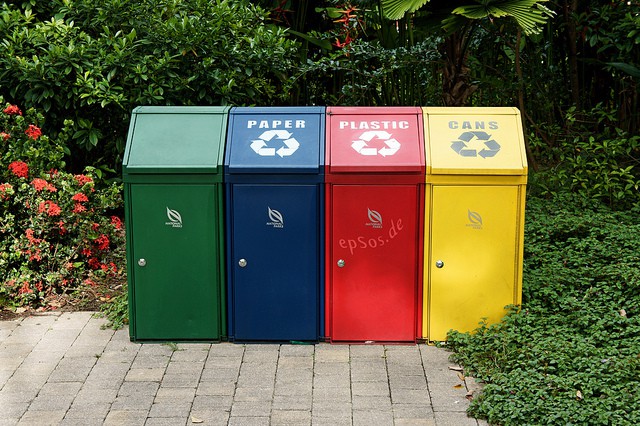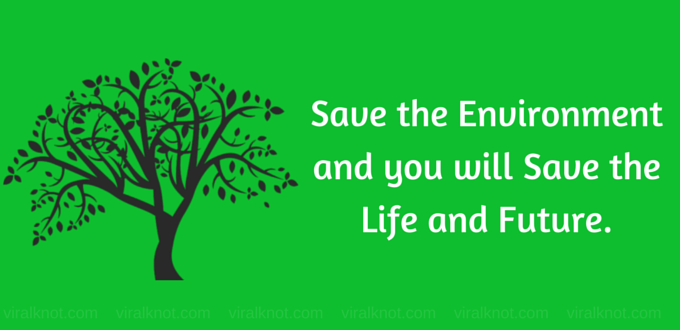Below are 40 facts about Recycling
Fact 1: Recycling is a process to create new items from old and used materials. This helps in reducing energy and potentially useful materials from being wasted.
Fact 2: Recycling is a part of waste disposal hierarchy – Reduce, Reuse, Recycle.
Fact 3: Aluminium cans can actually be recycled and put back onto the shelf at your local grocery store in just about 2 months.
Fact 4: Aluminium cans are probably the most recycled item, at least in the United States. While this is true, you can also recycle other forms of aluminium as well.
Fact 5: Recycling an aluminium can help to save a great deal of energy, in fact, enough to run your home television for about three hours!
Fact 6: Most beverage cans are made up of aluminium, even though there are other products that go into it as well.
Fact 7: If you throw away your aluminium cans, they can stay in that can form for up to 500 years or more- so recycling is the way to go.
Fact 8: Variety of raw materials including paper, plastic, metal, glass, electronics and textiles can be recycled.
Fact 9: You can recycle aluminium over and over again, and there is really no limit to it.
Fact 10: There are over 80 billion aluminium cans used each and every year around the world.
Fact 11: Aluminium used to be more valuable than gold, many years ago.
Fact 12: Half a million trees have to be cut down just to produce the Sunday newspapers each week.
Fact 13: Recycling a single days worth of the New York Times could save 75,000 trees or more.
Fact 15: If we recycled all newspapers, we could save over 250 million trees each and every year.
Fact 16: Most people in America all use at least seven trees each year, through wood, paper and other types of products that use trees. That is over 2 trillion trees throughout the course of the year when you think about it.
Fact 17: Each American uses around 680 pounds of paper each year, and most people just throw it away instead of recycling it for further use.
Fact 18: 2000 pounds of recycled paper can actually help to save 17 trees, over 350 gallons of oil, and a lot of landfill space. That also means less air pollution!
Fact 19: Recycling helps to conserve energy and as a result less greenhouse gases are emitted.
Fact 20: Americans will use over 2 and a half million plastic bottles every thirty minutes, and most of them are simply thrown away rather than recycled.
Fact 21: Plastic bags that are thrown into the ocean kill over a million sea creatures a year.
Fact 22: Over 60% of the trash that ends in dustbin could be recycled.
Fact 23: Over 25 trillion Styrofoam coffee cups are thrown away each year, just by Americans!
Fact 24: Glass jars can be recycled, but there are many that are just thrown away.
Fact 25: 24 trees are cut down to make 1 ton of newspaper.
Fact 26: Recycling helps to reduce the amount of waste that goes to landfills and as a result less harmful emissions like methane gas are released into the earth’s atmosphere.
Fact 27: A modern glass bottle could take over 4000 years to actually decompose, and if it is in the landfill then it will probably take even longer than that.
Fact 28: Most dumps are made up of a third of packaging materials that could be recycled.
Fact 29: Recycled paper produces approximately 70% less air pollution than if it was made from raw materials.
Fact 30: Each year, there are organic garbage thrown out that could be composted and recycled to use for fertilizer for the ground rather than pollutants.
Fact 31: Glass is 100% recyclable and can be used again and again. Glass recycling is separated into colors because glass retains its color even after recycling.
Fact 32: The most thrown away products in American include diapers, pens, razor blades, tires and aluminium- all of which can be used to be recycled into other products.
Fact 33: Due to the fact that people aren’t recycling as much as they should, the rainforests are actually be cut down by about 100 acres a minute.
Fact 34: Most people produce 4.4 pounds of trash per day that results in about 1.5 tons of solid waste per year.
Fact 35: Plastic bags and garbage that are thrown into the ocean have devastating effect on sea animals.
Fact 36: Approximately 1 billion trees worth of paper are thrown in US every year.
Fact 37: The amount of wood and paper that are thrown each year is enough to heat 50,000,000 homes for 20 years.
Fact 38: Recycling one ton of plastic can save up to 1,000–2,000 gallons of gasoline.
Fact 39: Recycling one glass bottle saves enough energy to power a 100-watt bulb for four hours.
As you can see, there is a lot of great information out there about recycling. If you have never considered recycling, or have thought about it and thought that it would really not be worth your while, you may want to think again. It can actually help to save you money in the long run, but more importantly it is great for the environment. It doesn’t take too much extra effort on your part, and if more people would do it then the world would be a much cleaner place to be.
It is clear that people need to do their part, especially if they want to work toward a sustainable planet that will be around for many more years to come. It is clear that we aren’t doing enough to take care of the planet, which is why we really need to learn more about recycling.
INTERESTING FACTS ABOUT RECYCLING!!!
INTERESTING FACTS ABOUT RECYCLING!!!





